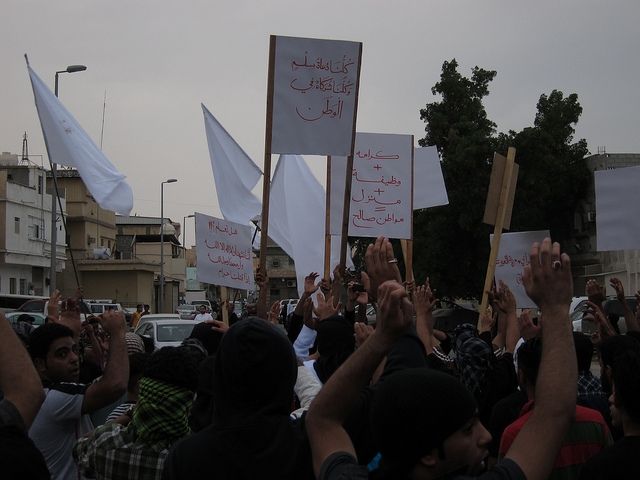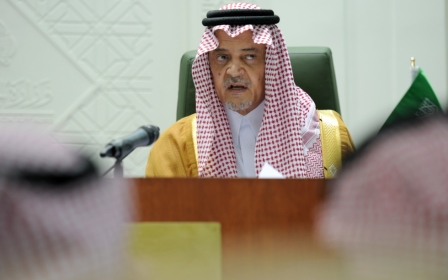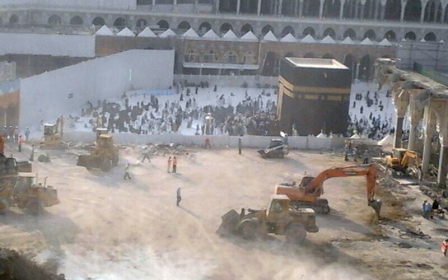Qatif protester sentenced to death in Saudi Arabia

Authorities in Saudi Arabia sentenced a protester in the restive Eastern Province to death on Monday, where anti-government demonstrations have led to clashes with security forces killing at least 21 people since 2011.
Ali al-Rubh, 26, was convicted of firing at security forces in the towns of Tarout and Darin in the Qatif governorate and found guilty of “harbouring a wanted man”, according to local daily Okaz. He plans to appeal the sentence, which was approved by the general prosecutor with the consent of three judges, according to local news site Rasid.
There have been sporadic protests in the mainly Shia Eastern Province for many years, but they have stepped up since the beginning of the Arab Spring uprisings in 2011 and often led to violent clashes with security forces. The Shia community, who make up 10 to 15 percent of the country’s 28 mn population, have long since complained of having their rights abused by the government.
Human Rights Watch say authorities “systematically discriminate against its Shia citizens”, citing poor access to public education and government employment alongside unequal treatment in the justice system. The government denies this and has banned protests in the oil-rich Qatif province that they say are violent and accused demonstrators of having a “foreign agenda” and threatening national security.
Rights groups have criticised authorities for failing to look into the deaths of protesters in the Eastern Province.
New MEE newsletter: Jerusalem Dispatch
Sign up to get the latest insights and analysis on Israel-Palestine, alongside Turkey Unpacked and other MEE newsletters
“While the government has prosecuted people alleged to have committed acts of violence, they have not provided any accountability for officers who killed over a dozen protesters in 2011-12,” said Adam Coogle, Middle East researcher at Human Rights Watch. “Despite human rights groups repeatedly calling for an investigation into the use of force used against protesters, the Saudi government has not made public whether it has conducted any investigation,” he added.
Monday’s death sentence was the first to be handed out to a protestor in the Eastern Province, according to activists who say the 26-year-old Rubh was subjected to torture during detention.
“After being arrested on 11 June last year Ali spent more than five months in solitary confinement, during which time he was regularly beaten and given electric shocks by prison guards,” said Ali Adubisy, head of the European-Saudi Society for Human Rights, who has been in regular contact with Rubh’s family from his base in Germany.
Authorities were not immediately available for comment but in the past they have regularly denied that torture is used in Saudi Arabia’s prison system.
Adubisy says Rubh’s father, Sheikh Jaafar al-Rubh, “is a close friend of the government and has been leading efforts to restore calm to the area”, an initiative that appears to be in jeopardy after Monday’s judgment.
Sheikh Jaafar, a prominent Shia cleric, has been mediating with authorities for the past four months, with the aim of bringing an end to clashes between government forces and protesters, according to local news site Rasid. He has liaised with the government to bring an end to street demonstrations in exchange for authorities agreeing not to arrest any more protesters.
The death sentence for Ali al-Rubh will now be reviewed by a higher court, with a date yet to be set for his appeal to be heard. A popular Twitter hashtag, “Ali al-Rubh”, has attracted more than 1,500 tweets in less than 24 hours criticising the conviction.
Around 300 people are being held in relation to the protests in Qatif, according the Rasid news site, with many of them currently on trial at the Specialised Criminal Court in the western city of Jeddah.
Middle East Eye delivers independent and unrivalled coverage and analysis of the Middle East, North Africa and beyond. To learn more about republishing this content and the associated fees, please fill out this form. More about MEE can be found here.




